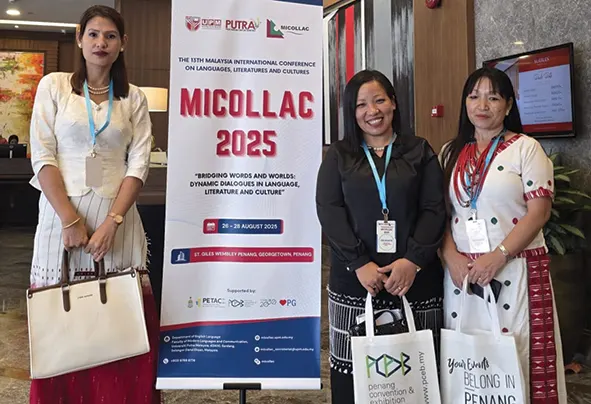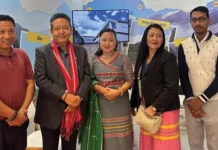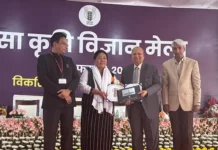RONO HILLS, 1 Sep: Showcasing the rich cultural and academic heritage of Arunachal Pradesh on a global platform, three academicians from the state presented their research papers at the 13th Malaysia International Conference on Languages, Literatures and Cultures, held recently in Penang, Malaysia.
The conference was organized by the University of Putra, Malaysia, drawing scholars and researchers from across the globe.
Representing Aruna-chal, Prof Anga Padu from Rajiv Gandhi University’s (RGU) education department, presented a paper titled ‘The role of Mopin in preserving the cultural heritage of Arunachal Pradesh’.
Her research highlighted how the Mopin festival serves as a vital instrument in sustaining the indigenous identity and customs of the Galo community.
Binny Yanga Government Women’s College Assistant Professor Dr Minu Sono’s paper, titled ‘Echoes of identity: The role of Nyokum in preserving Nyishi culture of Arunachal Pradesh’,delved into how the Nyokum festival acts as a cultural anchor for the Nyishi people, fostering community solidarity and intergenerational knowledge transfer.
Dr Tage Monju from RGU’s education department presented a socio-cultural study titled ‘The psycho-social experiences of tattooed Apatani women in Arunachal Pradesh, India’. Her research explored the lived experiences and cultural significance of traditional facial tattooing among Apatani women. She highlighted that Apatani women practised facial tattooing as a form of adornment – an expression of beauty and cultural identity – contrary to external narratives that often misinterpret the practice.
“These presentations not only brought international attention to the rich and diverse tribal cultures of Arunachal but also emphasized the state’s growing contribution to global academic discourse in the fields of language, literature, and cultural studies,” the RGU said in a release.
The participation of these scholars underscored the importance of preserving indigenous knowledge systems and the role of academia in documenting and promoting cultural heritage, it said.





